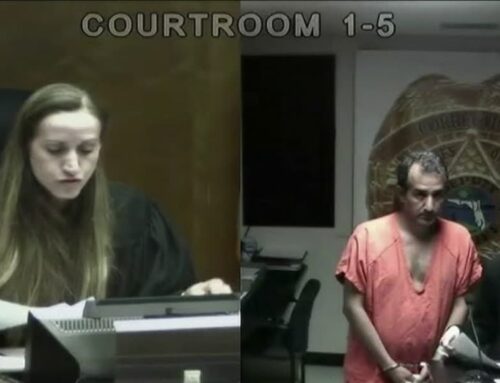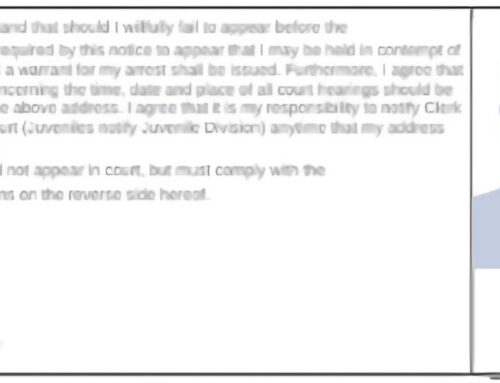Understanding No Informations and Nolle Prosequis in Florida
If you’ve been arrested and charged with a crime in Florida, you may be wondering what comes next. Many people assume that an arrest automatically leads to prosecution and a trial. But in reality, the State Attorney’s office can decide not to pursue charges after an arrest occurs. This is known as terminating the prosecution.
There are two ways the State can unilaterally end a criminal prosecution in Florida before it reaches the trial stage: 1) filing a no information; or 2) entering a nolle prosequi. Understanding how no informations and nolle prosequis work can help those accused of crimes know their rights and options.
What is a No Information?
A no information (sometimes called a “no action” or “no bill”) is filed when the State Attorney decides not to prosecute a case after an arrest but before an information or indictment has been filed. An information is a document filed by the State Attorney containing the formal accusation against the defendant. An indictment is a formal charge issued by a grand jury.
So if the State Attorney reviews a case after arrest and decides not to pursue charges, they will file a no information with the court. This serves to notify the defendant that the State is declining to prosecute and is dropping the charges.
A no information terminates the prosecution and releases the defendant from the obligation to appear in court or answer the charges. It also releases any bond that may have been posted. However, a no information does not prevent the State from prosecuting the charges later, as long as the statute of limitations has not expired.
When is a Nolle Prosequi Used?
A nolle prosequi (Latin for “be unwilling to prosecute”) operates similarly to a no information but applies after the formal charges have been filed through an information or indictment.
So if the State Attorney has already filed formal charges against a defendant by information or indictment but later decides not to prosecute the case, they will enter a nolle prosequi. Like a no information, a nolle prosequi serves to notify the defendant that the State is abandoning prosecution and dropping the charges.
A nolle prosequi also terminates the prosecution, releases the defendant from appearing in court or answering the charges, and dissolves any bond. And again, it does not permanently prevent the State from prosecuting the charges in the future if the statute of limitations allows.
The Difference Between a No Information and Nolle Prosequi
The main difference between a no information and a nolle prosequi comes down to timing. A no information is filed after an arrest but before any formal charging document. A nolle prosequi comes after the formal charges have been filed.
Aside from when they are entered, a no information and nolle prosequi have essentially the same effect – the State is declining to prosecute and dropping the charges while retaining the ability to potentially refile charges later if the statute of limitations allows.
How Nolle Prosequis are Entered
A nolle prosequi is entered through a formal entry on the record by the prosecuting attorney declaring that they will not prosecute the case further. This is usually a written notice filed with the court but may also be made orally.
The key is that there is a clear intent by the prosecutor to terminate the prosecution. Simply taking a case off the trial calendar temporarily does not qualify as entering a nolle prosequi, for example. There must be a clear statement of intent to end prosecution.
The State’s Discretion on Terminating Prosecution
Florida courts recognize that prosecutors have sole discretion over whether and how to prosecute a case under the constitutional separation of powers. This means the State Attorney’s office can terminate a prosecution by no information or nolle prosequi entirely at their own discretion.
The court does not have to approve a prosecutor’s decision to enter a no information or nolle prosequi. And the State does not have to provide any reason or explanation for abandoning prosecution. Their discretion is “absolute” under Florida law.
Of course, prosecutorial discretion is still subject to ethical limitations. For example, dismissing charges solely based on the race of the defendant could raise due process concerns. But in general, the decision to terminate prosecution rests entirely with the State.
The Court’s Role When the State Declines Prosecution
Because entering a no information or nolle prosequi is solely the prosecutor’s prerogative, the court has a very limited role. The court does not have the authority to interfere with the prosecutor’s discretion or force the State to continue prosecuting a case.
The court loses jurisdiction over the criminal charges once the State enters a no information or nolle prosequi. The court can take no further action to dismiss, try, or otherwise dispose of charges already abandoned by the prosecution. Any subsequent proceedings on charges terminated by the State will be a nullity.
However, as noted above, terminating prosecution does not permanently end the State’s ability to prosecute the charges. The State can choose to refile the same charges by obtaining a new indictment or filing a new information unless prohibited by the statute of limitations or a speedy trial violation.
Of course, defense counsel can file motions arguing that refiling the charges is improper for some reason. But the court cannot override the prosecutor’s discretion to terminate and later refile charges.
The Bottom Line
Being arrested and charged with a crime does not automatically mean your case will end up going to trial. The State Attorney’s office has broad discretion to decide not to prosecute a charge after it has been filed. This is done through either a no information (before formal charges) or a nolle prosequi (after charges have been filed).
If you receive notice that the prosecution is terminating your case through a no information or nolle prosequi, that is excellent news. It means the charges are dropped, and you currently face no further prosecution or penalties for the alleged offense. However, you should understand that the State could potentially refile the same charges later on if the statute of limitations allows.
Having an experienced Miami criminal defense lawyer can help advise you on your rights and options when facing criminal charges. If the State does abandon prosecution through a no information or nolle prosequi, a lawyer can help protect your interests if the State later attempts to refile charges. Don’t hesitate to contact a qualified attorney for assistance.
CALL US for a FREE CONFIDENTIAL CONSULTATION at (305) 538-4545, or take a moment to fill out our secure intake form.* The additional information you provide will greatly assist us in responding to your inquiry.
*Due to the large number of people who contact our law office requesting our assistance, it is strongly suggested that you take the time to provide us with specific details regarding your case by filling out our confidential and secure intake form. The additional details you provide will greatly assist us in responding to your inquiry promptly and appropriately.
ALWAYS INVESTIGATE A CRIMINAL DEFENSE ATTORNEY’S QUALIFICATIONS AND EXPERIENCE BEFORE MAKING A DECISION ON HIRING A LAWYER FOR YOUR CRIMINAL CASE IN MIAMI-DADE COUNTY







